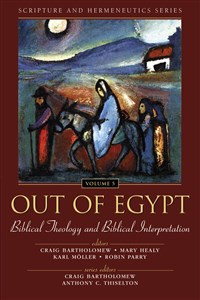Christianity believes in a God who acts in history. The Bible tells us the story of God’s actions in Israel, culminating in the ministry of Jesus of Nazareth and the spreading of the gospel from Jerusalem to Rome. The issue of history is thus unavoidable when it comes to reading the Bible Volume 4 of the Scripture and Hermeneutics Series looks at how history has dominated biblical studies under the guise of historical criticism. This book explores ways in which different views of history influence interpretation. It considers the implications of a theology of history for biblical exegesis, and in several case studies it relates these insights to particular texts. “Few topics are more central to the task of biblical interpretation than history, and few books open up the subject in so illuminating and thought-provoking a manner as this splendid collection of essays and responses.” Hugh Williamson, Regius Professor of Hebrew, University of Oxford, England “. . . breaks new ground in its interdisciplinary examination of the methodology, presuppositions, practices and purposes of biblical hermeneutics, with a special emphasis on the relation of faith and history.” Eleonore Stump, Robert J. Henle Professor of Philosophy, Saint Louis University, United States “This volume holds great promise for the full-fledged academic recovery of the Bible as Scripture. It embodies an unusual combination of world-class scholarship, historic Christian orthodoxy, bold challenges to conventional wisdom, and the launching of fresh new ideas.” Al Wolters, Professor of Religion and Theology, Redeemer University College, Ontario, Canada “The essays presented here respect the need and fruitfulness of a critical historiography while beginning the much-needed process of correcting the philosophical tenets underlying much modern and postmodern biblical research. The result is a book that mediates a faith understanding, both theoretical and practical, of how to read the Bible authentically as a Christian today.” Francis Martin, Chair, Catholic-Jewish Theological Studies, John Paul II Cultural Center, Washington, D.C. Not only is history central to the biblical story, but from a Christian perspective history revolves around Jesus Christ. All roads of human activity before Christ lead up to him, and all roads after Christ connect with him. A concern with history and God’s action in it is a central characteristic of the Bible. The Bible furnishes us with an account of God's interactions with people and with the nation of Israel that stretches down the timeline from creation to the early church. It tells us of real men, women, and children, real circumstances and events, real cultures, places, languages, and worldviews. And it shows us God at work in human affairs, revealing his character and heart through his activities. “Behind” the Text examines the correlation between history and the Bible. For the scholar, student, and informed reader of the Bible, this volume highlights the importance of history for biblical interpretation, and looks at how history has and should influence interpretation.







